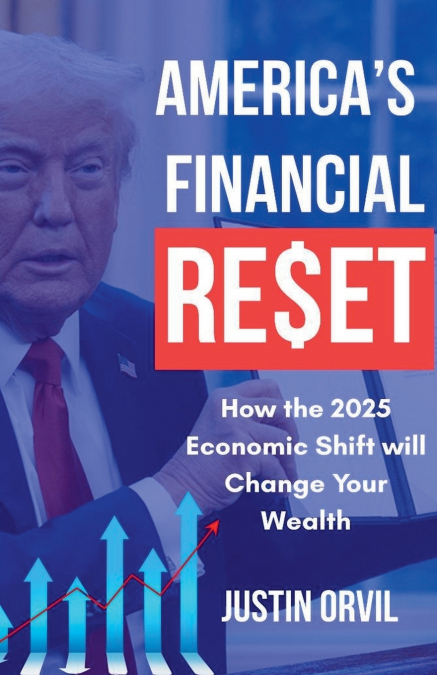
Justin Orvil
As we know it. By 2025, a financial reset is coming that will impact every aspect of how we earn, save, and invest. This isn’t just another prediction-it’s a financial shift driven by technology, policy changes, demographic trends, and global forces, all of which will have profound effects on personal and national wealth.The book explores the intricate web of changes that will define this financial reset. As automation and artificial intelligence continue to make deep inroads into industries, they will not only eliminate jobs but also create new avenues for wealth generation. Traditional industries and business models will face disruptions, forcing individuals and businesses to adapt quickly or risk being left behind. Those who understand these changes early will have the power to navigate the shift to their advantage.Aging populations across the globe are altering consumption patterns and shifting the demand for services in ways that could reframe what we consider as 'secure' investments. What does this mean for retirement planning and the stability of social programs like Social Security? As the workforce evolves, workers’ needs, desires, and priorities will shift. Millennials and Gen Z are not simply entering the workforce-they’re changing it entirely, looking for jobs that align with values of sustainability, flexibility, and purpose. Their demands are shaping the economy and will have lasting effects on industries like housing, technology, and financial markets.Meanwhile, global tensions, shifting trade relationships, and changing supply chains will affect the way goods and services are produced and consumed. Geopolitical instability could introduce a level of unpredictability into markets that we’ve never seen before. All of these forces will demand that you stay ahead of the curve. Those who rely on old financial models will find themselves scrambling to make sense of a new world order.Monetary policies will evolve in response to these shifts. Central banks, already grappling with the effects of inflation and fluctuating interest rates, will make decisions that ripple throughout the financial system. These decisions will affect everything from borrowing costs to returns on investments. A change in policy today could alter the way we save and spend tomorrow.What does this mean for your wealth? The reset could cause significant shifts in everything from housing prices to stock market performance. Your wealth-building strategies that have worked in the past may no longer be effective. To succeed, you’ll need to understand the macroeconomic trends at play and adapt accordingly. From the rise of decentralized finance to shifts in real estate markets, it will be necessary to rethink how wealth is generated and preserved in an era of change.The financial reset of 2025 will also have a significant impact on the individual. Jobs as we know them may no longer exist, and industries will rise and fall at an accelerated pace. Knowing how to adapt to these changes is crucial. In particular, understanding how to pivot in your career, reassess your financial strategies, and capitalize on new opportunities is the key to financial security. Whether you’re looking at real estate investments, tech stocks, or new ventures, you’ll need to be aware of the trends that matter-and avoid those that don’t. This book is for anyone who wants to understand the economic forces that are shaping the future. Whether you’re a seasoned investor, a new entrepreneur, or simply someone who wants to better understand how the next few years will affect your wealth, this book provides the tools and insight you need. You’ll gain a deeper understanding of the financial reset, how to align your wealth strategies with emerging trends, and how to make informed decisions in an ever-changing economic landscape.